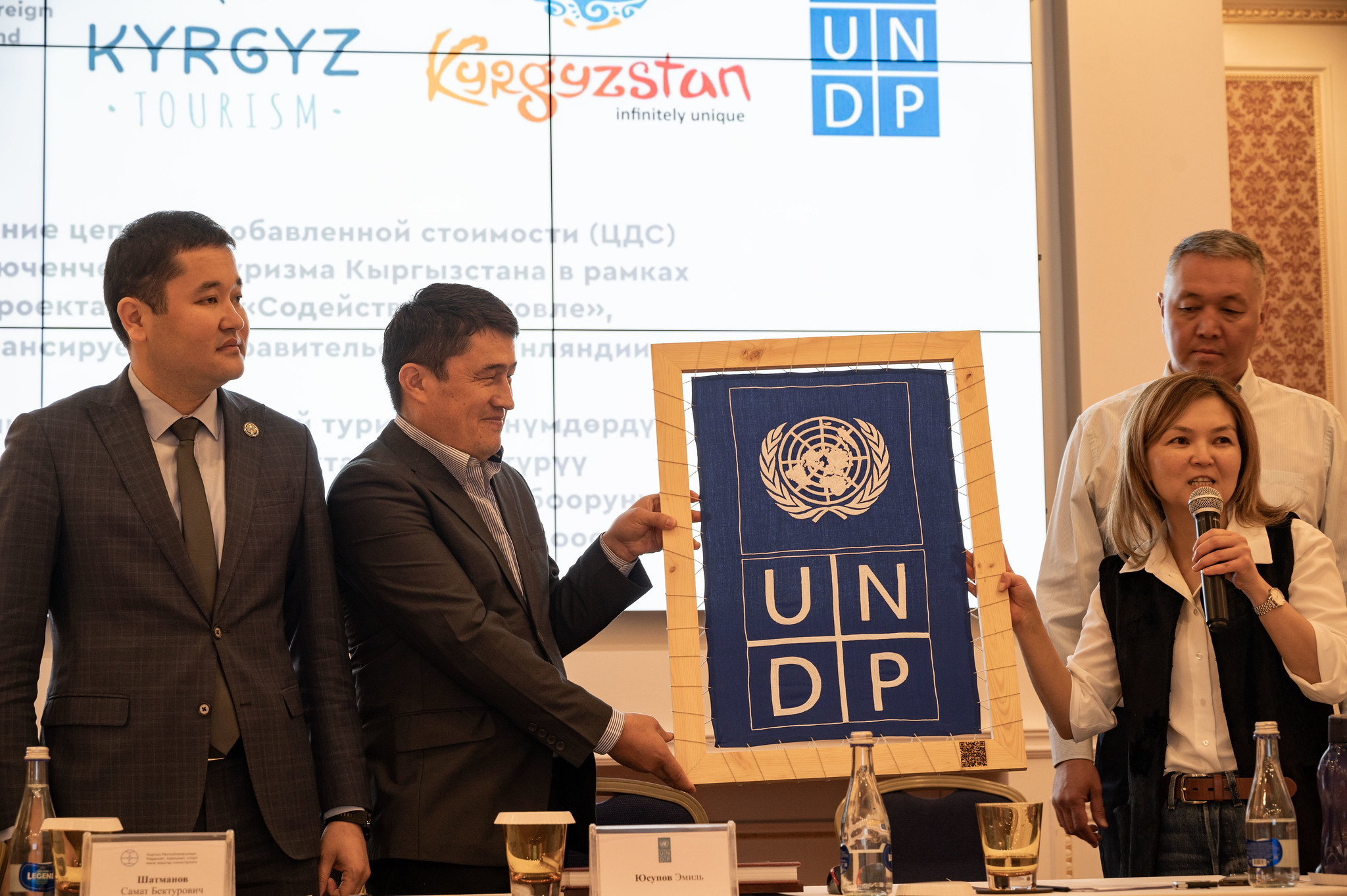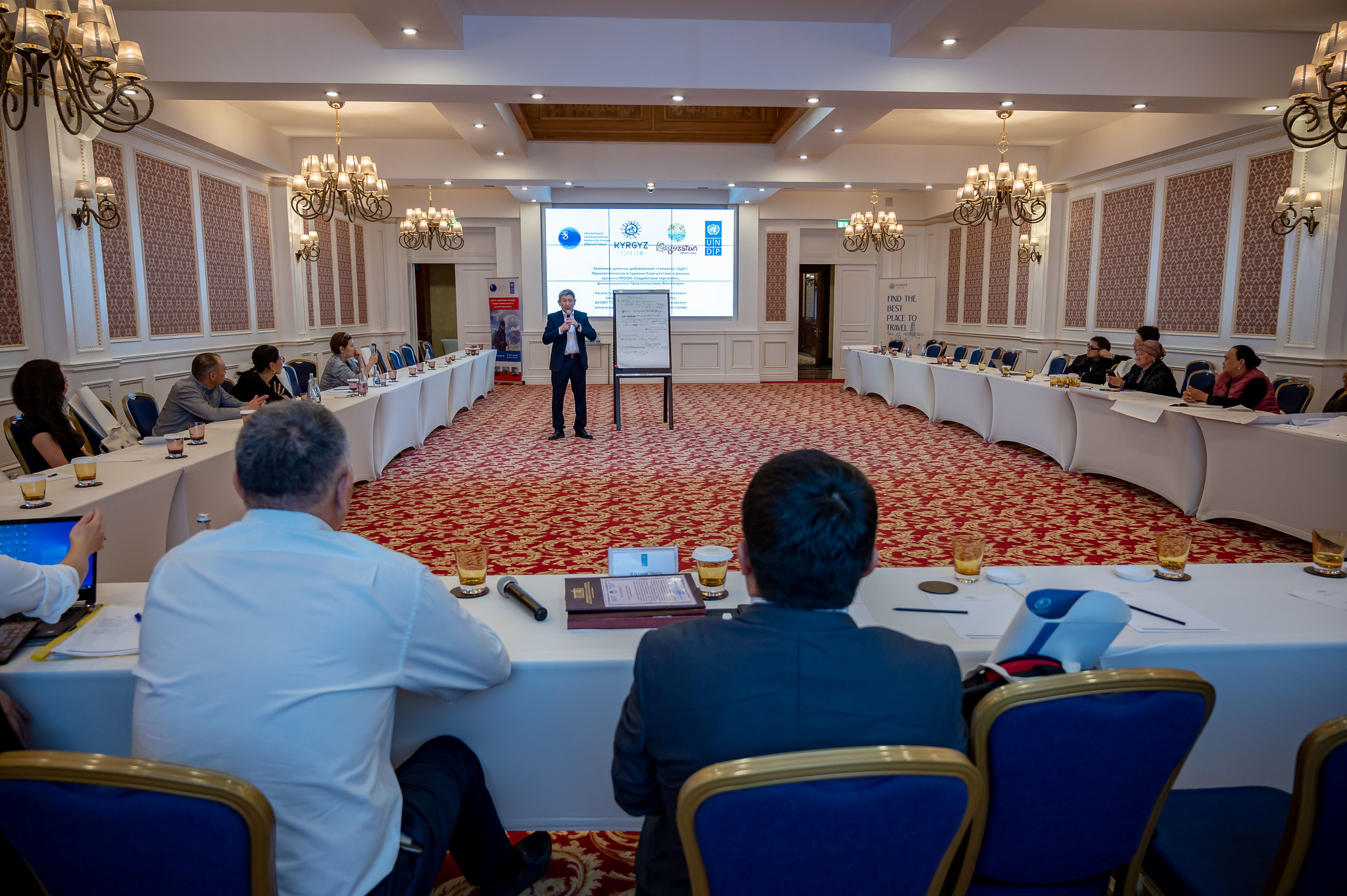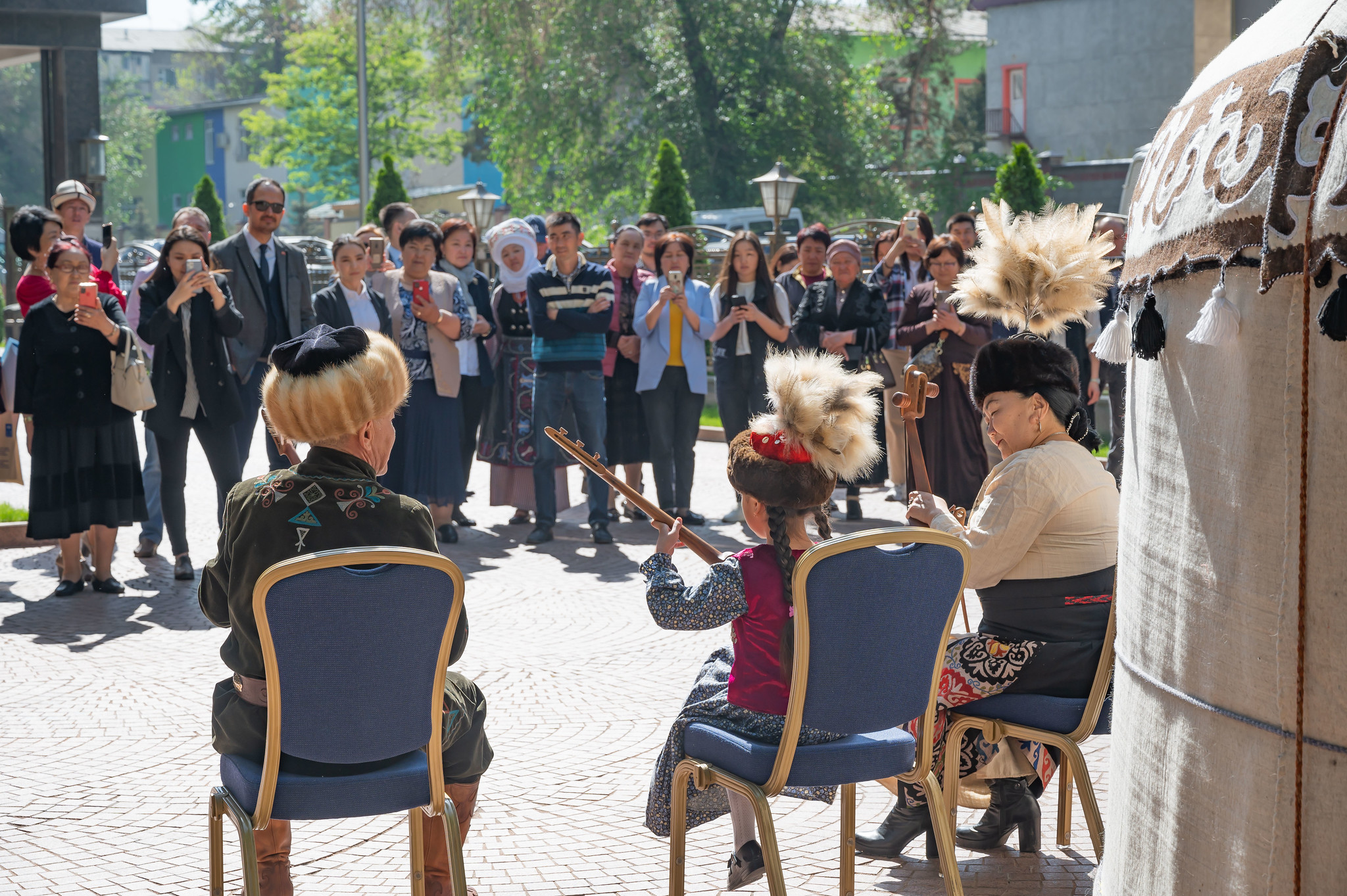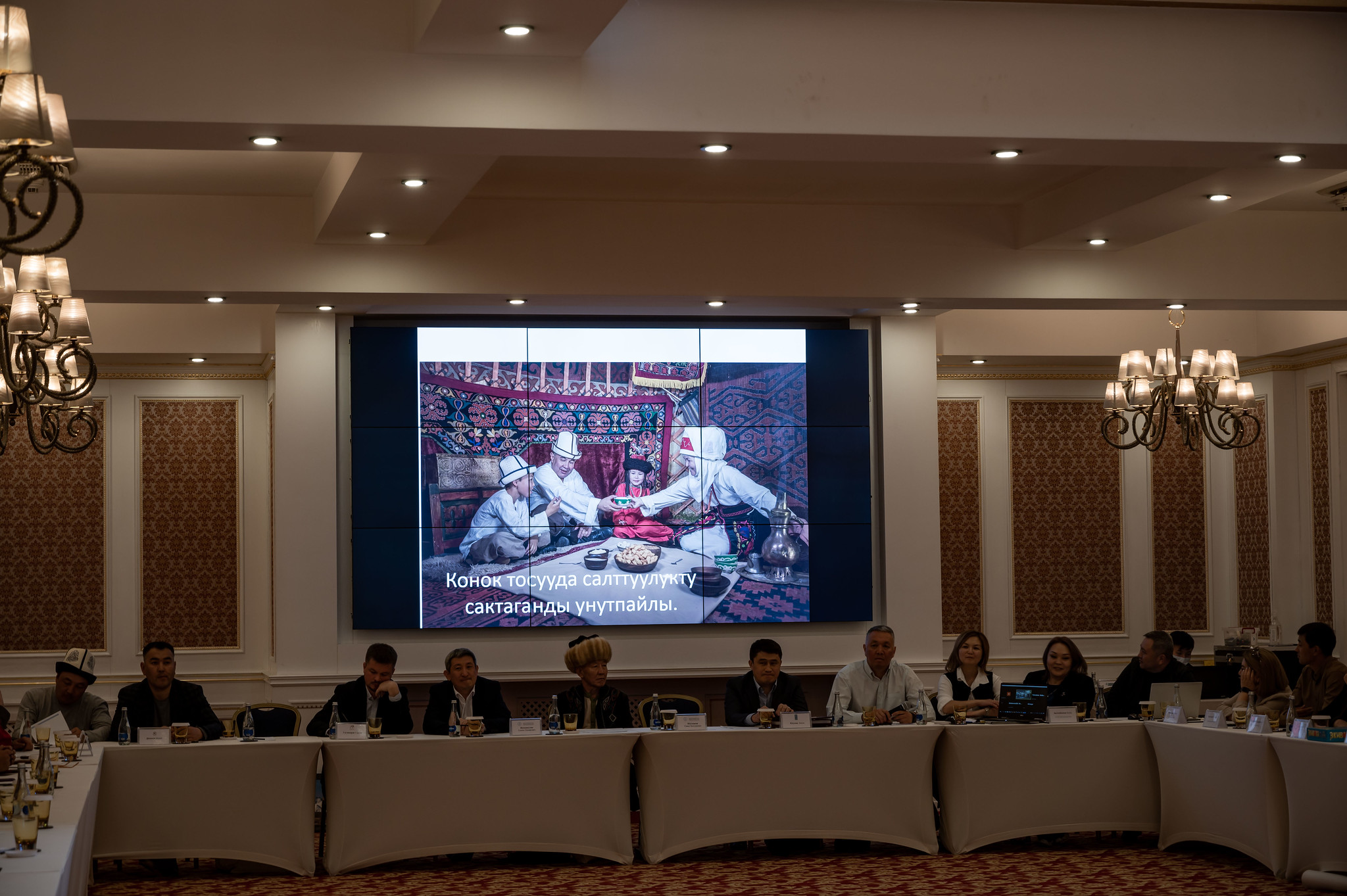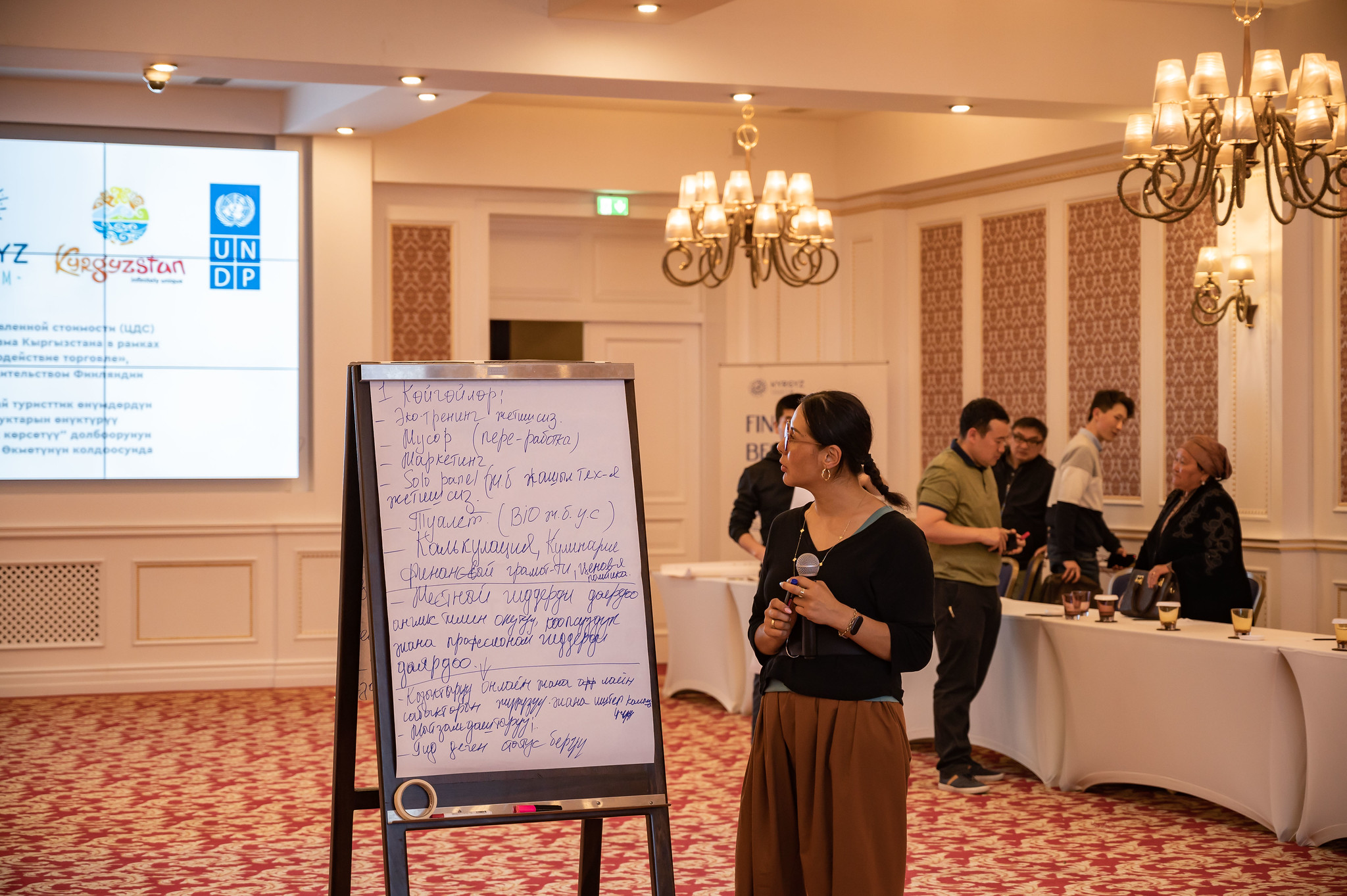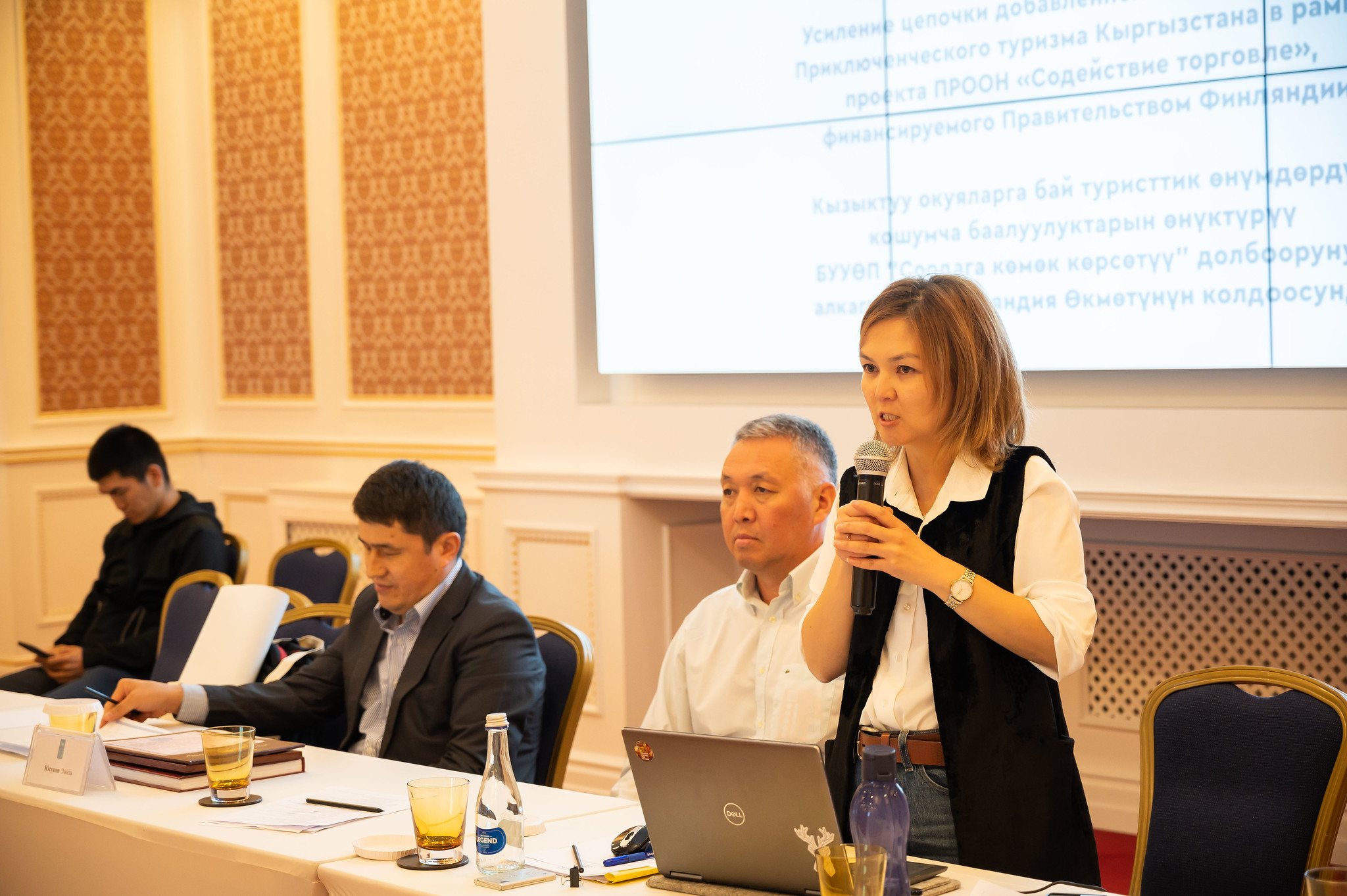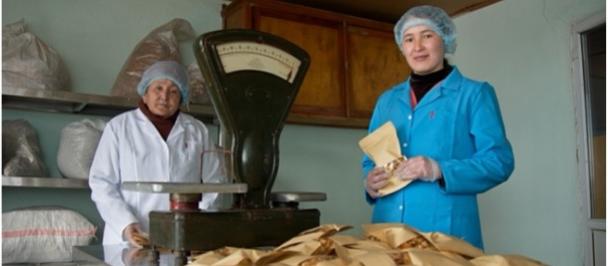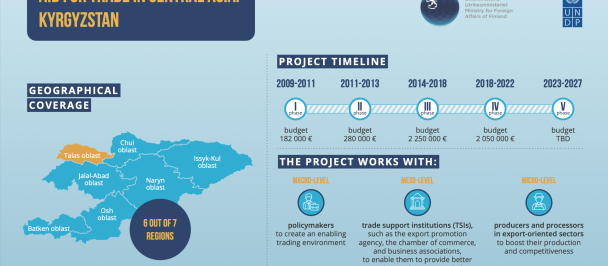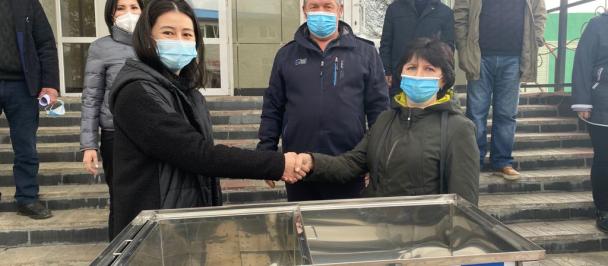Bishkek, 28 April 2022 - The United Nations Development Programme in Kyrgyzstan in cooperation with the Kyrgyz Department of Tourism concluded the results of the work on strengthening the adventure tourism value chain implemented within the Aid for Trade project. The roundtable gathered together a wide range of actors in the tourism sector – the KATO Association, the Union of Walking Tourism, the Horeca Association, transport companies, guides and other providers of tourism services – to develop recommendations to improve the quality of tourism products and services, as well as to strengthen the sector’s export potential.
Tourism plays an important role in women's economic empowerment and contributes to infrastructure development, which in its turn has a positive impact on other sectors of the economy. There is also an untapped potential to make the sector green and sustainable thus contributing to environmental protection. Kyrgyzstan needs to be positioned as a new touristic destination as it has a wide range of tourism resources. However, coordinated joint efforts are required to revive the sector and overcome post-COVID-19 implications induced by almost a two-year lockdown.
"The tourism industry in the Kyrgyz Republic is recognised at the state level as one of the priority sectors of the economy. I would like to note that the Department of Tourism over the past year has taken enormous efforts to stabilise the situation in the tourism sector. Action plans to restore and develop tourism in the Kyrgyz Republic have been developed and implemented. Despite the difficulties, the industry continues to develop with the joint efforts of partners. As you know, the issues in the field of tourism are solved in a comprehensive way. I hope that we will continue to work closely with our partners to develop tourism in our country,” said Samat Shatmanov, Director of the Department of Tourism of the Kyrgyz Republic.
The work of the Aid for Trade focused on adventure tourism which is considered to be one of the branches of sustainable tourism and that takes care of travellers, local people, cultural heritage and the environment. The project supported the participation of Kyrgyz companies in various tourism roadshows, including in Oman, Bahrain, Kuwait, Korea, India, the UK, and UAE. Moreover, the project supported the sector through strengthening the capacity of tourism services providers, facilitating promotional activities, as well as creating new tour products.
"While tourism can contribute significantly to Kyrgyzstan’s sustainable and inclusive economic development through its capacity to create jobs – especially for women and population in rural areas – and be green, the sector’s potential in Kyrgyzstan has not been fully realized. It is for this reason that our project has selected adventure tourism as one of our target value chains. Such support became particularly important and necessary in light of the devastating effects of the COVID-19 pandemic on the tourism sector. As a result of two-year work, the project has achieved notable results and learned valuable lessons for future interventions," commented Aisuluu Mambetkazieva, UNDP Aid for Trade Project Coordinator.
As a result of the roundtable discussions, the following practical recommendations have been developed and presented:
1. To transfer to an electronic system for citizens and tourists to apply for border passes, registration and other public services;
2. To improve public-private partnership system;
3. To attract international air companies to cooperate with the Kyrgyz Republic;
4. To improve communication between value chains, public sector, business, NGOs, service providers;
5. To improve the infrastructure and support MSMEs through the provision of low-interest loans and grants.
Recommendations for the education block:
1. To train university students on more practical tourism topics (mountain and adventure tourism, active tourism, cultural tourism, etc.);
2. To conduct internships with tour operators and introduce a mentorship programme in tourism;
3. To conduct practical trainings for value chain actors, such as master classes, experience exchange and adaptation of successful cases (financial literacy, English, security, etc.);
4. To use digital solutions (online, offline) for training;
5. To teach children and young people to respect nature, through participatory activities.
Environmental Block:
1. Increasing the eco-culture and eco-responsibility among the population;
2. Special treatment of tours that are located in specially protected areas;
3. Involvement of rangers and nature park workers in tourism services;
4. Management of seasonality by creating new tour products.
This initiative took place within the framework of the Aid For Trade in Central Asia project, supported by the Government of Finland and implemented by UNDP.

 Locations
Locations